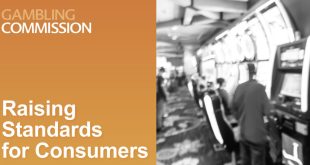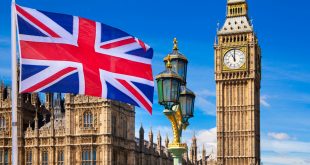Ministers and betting leadership will be reviewing the findings of the ‘Gambling-related harms evidence review’ paper published today by Public Health England (PHE).
In 2019, PHE was instructed to review gambling’s societal harms as a departmental duty, following on from DCMS’ review of FOBTs and social responsibility measures.
In its remit, PHE was asked to examine the social impact of an industry ‘generating £14.2 billion in profits’ and to provide insights on how to develop a ‘population level approach to tackling gambling-harms as a public health issue’.
Evaluating risks and harms, PHE said that there was a need to fully understand ‘the extent to which gambling is a public health issue’ and which communities and socio-demographics are being affected by harms.
It also found that evidence was required on the prevalence of gambling and gambling-related harms in England by socio-demographic characteristics and geographical distribution. Furthermore, PHE was required to determine the risk factors of gambling and harmful gambling and its impact on individuals, families, communities, and wider societal harms.
Six studies were undertaken by PHE in its assessment of the social and economic burden of gambling, and to provide feedback on stakeholders’ views of gambling related harms recorded across England.
Societal harms were classified using an existing framework of – financial harm, mental health abuse, relationship/family conflict, employment/educational loss, criminal activity and cultural/community damage.
The report’s gambling prevalence model was set to 2018 statistics that outlined 24.5 million in England gambled, equal to 54% of the adult population (40% excluding National Lottery). On problem gambling prevalence, the report maintained that 0.5% of players reached the threshold to be considered problematic.
Socio factors underlining problem gambling risks across England, included poor mental wellbeing and physical health, social mobility, life outlook, alcohol consumption, employment and economic anxieties.
PHE findings revealed that problem gamblers participated in seven-or-more gambling activities across all disciplines – with participation in online gambling for at-risk gamblers (23.4%) being double that of the general population (9.4%) in 2018.
In its breakdown of gambling participation, PHE noted that children and young people who reported participating in any gambling in the last seven days has reduced from 23% in 2011 to 11% in 2019.
England’s child gambling rates in the last 12-month reduced from 39% in 2018 to 36% during 2019. “The extent of gambling among children and young people is lower than drinking alcohol,” it noted.
Subsequent to addressing gambling prevalence and social harms, PHE provided an evaluation of “the costs to society from gambling-related harms”, in which the agency estimated that the “annual economic burden of harmful gambling is approximately £1.27 billion”
The economic evaluation cited that half of the estimated burden (£647 million) was a direct cost to government, interlinked with public health issues related to tackling mental health and wellbeing.
Providing a breakdown of mental health dynamics, PHE noted that the biggest social impact was attributed to gambling suicides which generated an estimated cost of £620 million based on 409 suicides per year.
Costs of depression and problem gambling were estimated at £335 million, based on research of +250,000 patients suffering mental health issues. Meanwhile, Gambling and alcohol and drug dependence were deemed to cost £6 million per year.
Criminal activity related to gambling was reported to cost £163 million, based on 3,799 prison inmates that had committed offences due to problem gambling.
In its feedback to stakeholders, PHE highlighted the opposing views and standpoints in how problem gambling harms are discussed between commercial and non-commercial stakeholders.
PHE advised stakeholders to identify and approach ‘specific types of gambling harm’ outlined in its report, as means to better understand problems related to health harms, finance, criminal activity, community impacts and employment.
Concluding its review, the agency maintained previous interpretations of measuring gambling harms, in which the subject matter had been constrained by limited quantitative analysis and available data.
“The lack of evidence meant that we could not cost all of the harms identified in the review, or cost the economic and social burden of gambling on affected others,” it said.
“This means that the overall estimated costs are likely to be underestimated. However, our economic analysis does provide a more recent and extensive estimate of excess costs than has been previously attempted.”









